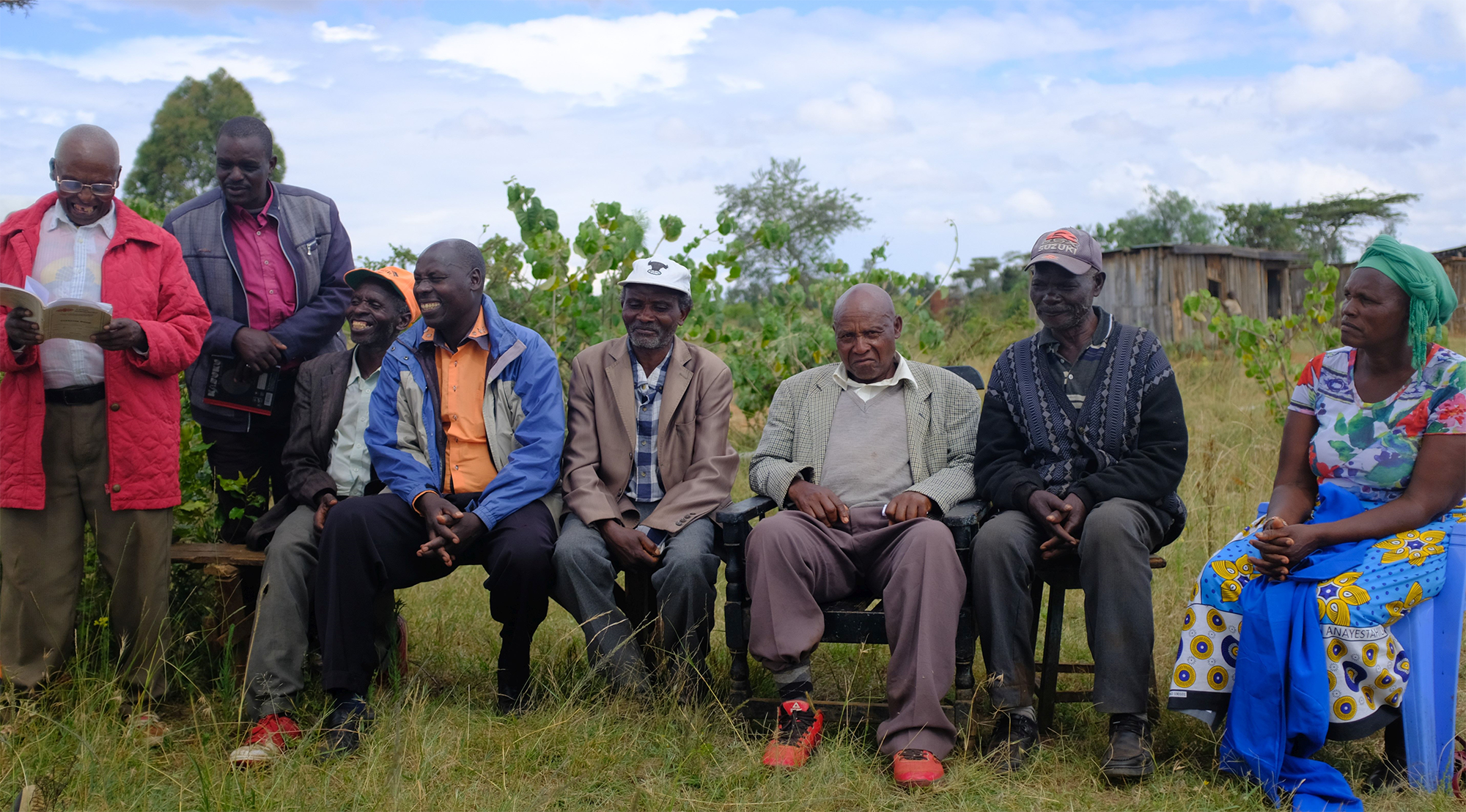Cattle rustling has become a lucrative business in the arid and semi-arid regions of Kenya. Amid ethnic clashes, banditry, private land encroachment, and political contestations along ethnic lines, cattle rustling is a symptom of the increasing pressure on natural resources. The number of violent acts has increased over the past few months in Baringo County, Kenya. The region has a hot and dry climate throughout the year, and precipitations do vary. Thus, availability and access to water are a reoccurring issue, particularly in the low-lying regions during the dry season.
The Catholic Diocese of Nyahururu works as one of few organizations in Mochongoi, a location within this area. Given the described conflicts, the diocese carried out conflict analyses with representatives from the different segments of society: traditional elders, women groups, the security sector, county administrations, and religious leaders. They confirmed the known ideas about the reasons for conflict. Additionally, they highlighted the influx of illegal arms from the Northern border. The use of weapons transformed the long-time traditional function of cattle raiding from a means of redistributing wealth within pastoral societies to a commercial-like activity exacerbated by political influences and corruption. The lack of developed infrastructure and tough geographical terrain towards West Pokot County often prevents the police from tracking armed cattle raiders and successfully recovering livestock. Furthermore, the security forces lack proper communication capacities with the public; they are ill-equipped and thus often become targets themselves.
The conflicts heavily affect the local communities. An increased number of internally displaced persons move away from the lower parts of Mochongoi to the upper parts, increasing the need for basic services in the project region. As a result, youth and young adults find themselves with low access to education and lack opportunities, thus creating a downwards spiral in alcohol, idleness, and willingness to participate in violent activities. In the past five years, over ten primary schools have been vandalized and community projects threatened. Whereas men mostly pay with their lives, women and children are increasingly attacked, as they have to replace the men to graze the livestock. In addition, there is an increase in widow-headed households and women living in informal settlements as they lack the land for gardening to feed their families.
The Catholic Diocese of Nyahururu is working towards breaking the cycle of violence. The Caritas team is strengthening local peace committees by training them in conflict analysis and conflict resolution techniques. The peace committees bring together pastoralist and farming communities, having an interest and a role to play in the conflict of these regions. The peace committee members learn to separate criminal cases from those that they can potentially mediate themselves. They also work closely with other crucial actors such as the police, traditional elders, whose role in traditional conflict resolution mechanisms is essential. Cases of cattle rustling are part of the conflicts that the peace committees try to solve first on their own. However, cattle are often transported over long distances. The peace committees contact other peace committees beyond their own jurisdiction to track the cattle and, in the best case, recover them through a mediated agreement between the two communities’ leaders. This is enabled by the numerous trust-building activities that they undertake. In 2020, 8 cases of theft out of a total of 600 head of cattle were reported to the peace committees. All livestock could be recovered.
The coronavirus pandemic continues limiting the meeting possibilities of the peace committees. In addition, the increasing effects of climate change make resource-based conflicts more likely. And the upcoming general elections (presidency and parliament) make it more likely for politicians to use ethnic rivalries to their advantage. Within this context, the importance of the very localized peace committees integrated into a wider network of peace actors becomes evident.


